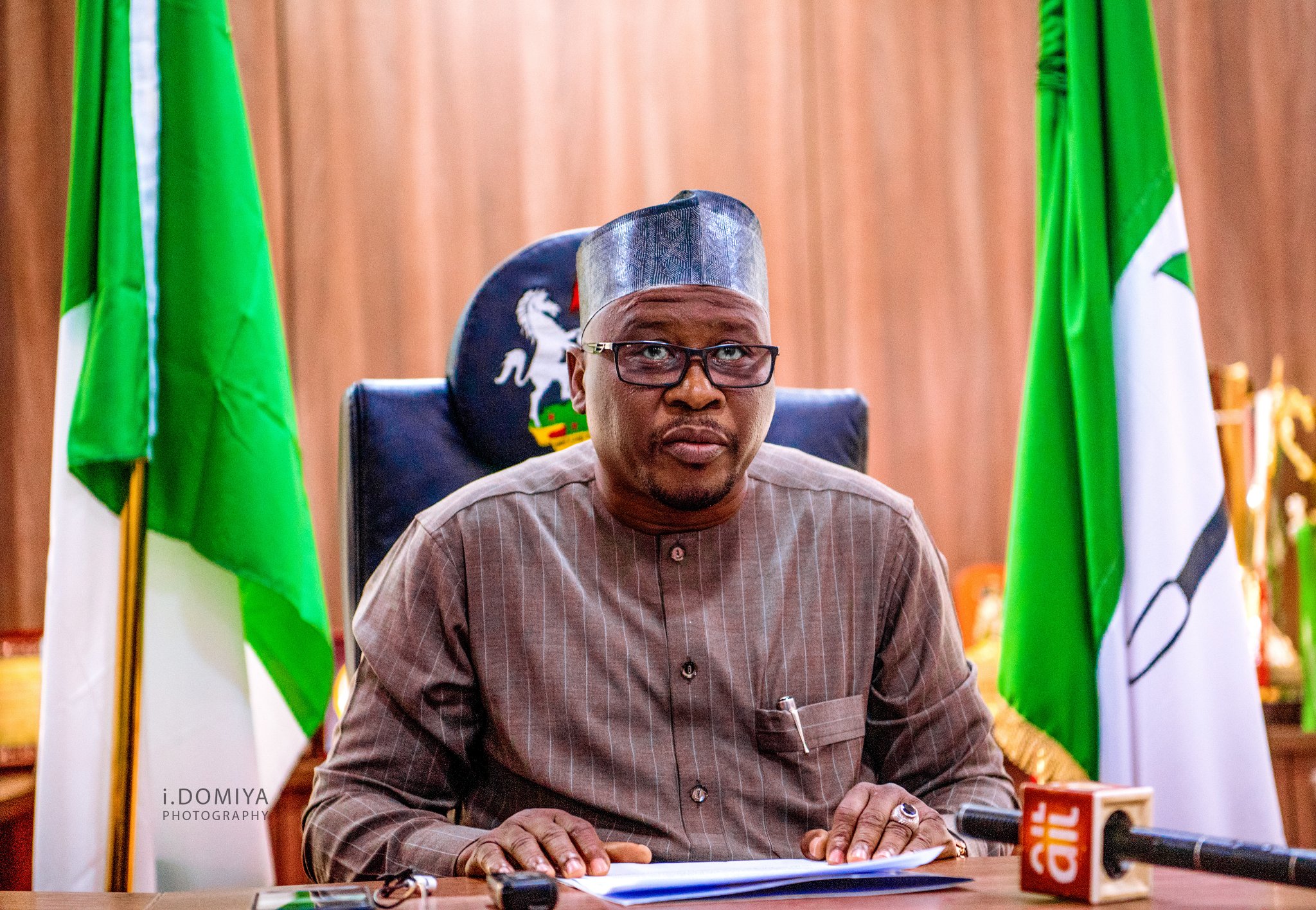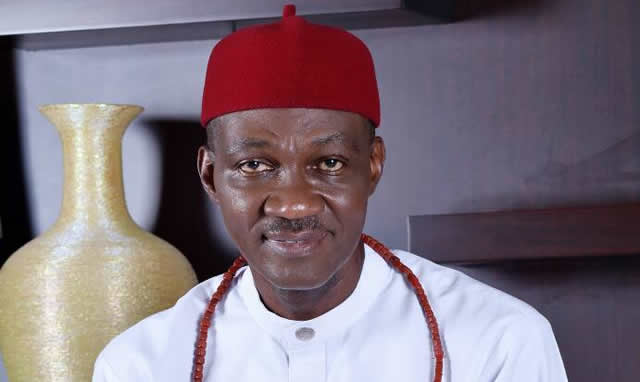Agriculture
IFAD urges NDDC to provide $30m for implementation of LIFE-ND project

By Matthew Eloyi
The International Fund for Agricultural Development (IFAD) has called on the Niger Delta Development Commission (NDDC), to provide 30 million dollars counterpart funding to fast-track implementation of the Livelihood Improvement Family Enterprises in Niger Delta (LIFE-ND) project.
National Project Coordinator, LIFE-ND, Mr Abiodun Sanni, made the call at the project Third Joint Implementation Support Mission Wrap-up meeting, on Thursday in Abuja.
It was gathered that LIFE-ND was being implemented by IFAD and the Federal Government to support the Nigeria Green Alternative Roadmap for Agriculture and Strategic Framework aimed at enhancing youth empowerment and job creation as well as support the NDDC master plan for the development of the Niger Delta region.
According to reports, the strategies were motivated by the waste of potentials and growing restiveness among estimated 22 million unemployed youth especially in rural areas who need economic opportunities to improve their livelihood.
Sanni said that the LIFE-ND was targeting nine states including Akwa Ibom, Rivers, Imo, Abia, Bayelsa, Cross River, Delta, Edo and Ondo.
He said that the NDDC at the inception of the project in 2019 pledged 30 million dollars to fund three states of Akwa-Ibom, Rivers and Imo.
“However, from the commencement of the project in 2019 till date, the commission was yet to meet up with its commitment, the lapses are major challenge to the timely implementation of the project,” he said.
He called on the NDDC to match its commitment with action by providing its quota to the development of the region.
Sanni said the overall goal of LIFE-ND was to realise a transformed rural economy in which the rural population can derive prosperity and equal benefits.
He said the central thrust of the project was to use the incubation model to drive and promote agribusiness enterprise development among women and youths in rural areas of Niger Delta region.
According to him, the project is supported by a strategic Project Development Objectives (PDO) to enhance income, food security and job creation for rural youth and women through agribusiness development on sustainable basis.
In his remarks, Country Programme Manager, IFAD, Mr Patrick Habamenshi, said that the amount available for stipends and working capital for incubators and incubatees remained one of the greatest challenge of the project, adding that it need to be addressed to achieve the set objectives.
He further frowned at increased risk of dropping the three NDDC funded states during the midterm review due to the failure of the commission to mobilise its counterpart funding.
The Programme Manager, who emphasised the need for strong advocacy in Cross River State, said that IFAD was exploring viable option to bridge the 32 million dollars funding gaps from co-financing partners.
He said the project would adopt proactive steps to address impact of inflation on support available for incubatees and salaries structures of operating cost to fast track commencement of the project in Akwa-Ibom, Rivers and Imo States in 2022.
Also speaking, Director, Project Coordinating Unit, Federal Ministry of Finance, Mr Ubandoma Ularami, assured the commitment of the ministry in ensuring availability of fund to ensure full participation of the nine benefiting states.
Ularami said that the ministry would collaborate with the National Assembly to ensure adequate funding of NDDC, to meet its counterpart fund of the three states lagging behind.
Agriculture
Fintiri Unleashes N2bn Boost for Farmers as Adamawa Rolls Out 2025 Agricultural Support Programme

The Adamawa State Government has launched the 2025 Agricultural Support Programme aimed at empowering smallholder farmers and enhancing food security across the state.
Commissioner for Agriculture, Prof. David Jatau, disclosed this on Friday while briefing journalists in Yola. He revealed that Governor Ahmadu Umaru Fintiri had approved a substantial N2 billion for the initiative, which targets increased agricultural productivity in the upcoming farming season.
According to Jatau, the programme—which is already underway—will provide subsidised agricultural inputs such as fertilisers, improved seeds, and other essential materials to farmers in six local government areas.
“The programme has already commenced in six LGAs—Madagali, Michika, Hong, Maiha, Demsa, and Ganye,” he said. “By next year, during the rainy season, we will extend the programme to the remaining LGAs.”
He explained that 300 hectares of farmland would be cultivated in each of the participating local governments, with 300 farmers benefitting per council.
To ensure fairness and transparency, Jatau said a multi-stakeholder committee had been constituted to oversee the beneficiary selection process. The committee comprises representatives of traditional councils, local government authorities, security agencies, youth groups, and women organisations.
“We are also equipping extension workers with training to offer farmers guidance on modern agricultural techniques for improved yield,” he added.
The commissioner noted that the intervention would not only increase food production but also generate employment, improve rural incomes, and contribute to economic stability in farming communities.
Jatau also revealed that the state government is collaborating with non-governmental organisations and agricultural development bodies, with over 2,700 hectares of farmland pledged by development partners for cultivation.
He reaffirmed the Fintiri administration’s commitment to achieving food self-sufficiency and urged beneficiaries to make the most of the programme.
Agriculture
KWASU Microfinance Bank disburses loan to farmers

The Kwara State University (KWASU) Microfinance Bank has provided loan facilities to farmer groups in and around Malete, Moro Local Government Area.
The Vice-Chancellor and Chairman of the Board of Trustees, KWASU Microfinance Bank, Prof. Jimoh Shaykh-Luqman, announced this while presenting offer letters to the farmers’ associations at a formal event held on the university campus.
Addressing the farmers, the Vice-Chancellor, represented by the Deputy Vice-Chancellor (Administration), Prof. Moshood Jimba, said the agricultural loan scheme aimed to support farmers in boosting food production and enhancing food sustainability.
“The loan is meant to support your farm operations, especially in the upcoming planting season,” he said.
Prof. Shaykh-Luqman reaffirmed KWASU’s commitment to its mantra of being a “University for Community Development,” leveraging its expertise and resources to initiate programmes that drive local development.
The Managing Director and Chief Executive Officer of KWASU Microfinance Bank, Alhaji Hakeem Hassan, noted that the agricultural loan scheme was piloted last year with 15 farmers as beneficiaries.
He added that the pilot scheme yielded positive results for both the farmers and the bank, as all beneficiaries successfully repaid their loans.
Following this success, he said, the scheme had been expanded to include more farmers under various farmers’ associations.
The News Agency of Nigeria (NAN) reports that the associations benefiting from the agricultural loan scheme include Alanu Agbelere Farmers Group, Agbedola Ketere Group, and Itesiwaju Agbe Group Omoni.
Others are Agbeloba Farmers Association (Malete Market), Agbeyewa Elemere Farmers Group, Agbe Olofeere Group, and Agbeloga Malete Farmers Group.
Speaking on behalf of the farmers, the Chairman of Agbeloba Farmers Association (Malete Market), Alhaji Mohammed Abdulrazaq, expressed gratitude to the university and the bank for their trust.
He pledged, on behalf of the beneficiaries, to utilise the loans effectively and ensure prompt repayment.
Agriculture
Kano Govt. implements N2.3bn livestock empowerment programme

The Kano State Government has begun implementing the second phase of its livestock empowerment programme valued at N2.3bn under the Kano State Agro-Pastoral Development Project (KSADP).
The Commissioner for Agriculture and Natural Resources, Dr Mamood Danjuma, disclosed this while addressing newsmen on Thursday in Kano.
Danjuma said the initiative aims to support beneficiaries with livestock, feeds, drugs, and salt lick to enhance their economic well-being.
According to him, 911 beneficiaries are being supported with two rams each, feed for three months, drugs and salt lick, while 2,386 women are being supported with two goats and a buck goat in the poorest households in the state.
He explained that the total package under the empowerment programme showed that 1,342 bulls were procured by the government at the cost of N560m, 1,822 rams were procured at the cost of N175m and 7,158 goats bought at the cost of N451m.
“Under the cattle scheme, each cattle gains 100kg over a period of 120 days. The fattening period is for 120 days, making three cycles possible in a year.
“As for the small ruminants fattening scheme, with the same 120-day fattening period yielding an extra 15kg/animal.
“The project promotes goats’ reproduction through women who will take care of the animals and sell the young ones to improve their income and standard of living,” he said.
He said that the programme promotes economic empowerment, particularly among women, by providing them with livestock to care for and sell, ultimately improving their income and standard of living.
-

 Headlines4 years ago
Headlines4 years agoFacebook, Instagram Temporarily Allow Posts on Ukraine War Calling for Violence Against Invading Russians or Putin’s Death
-

 Headlines4 years ago
Headlines4 years agoNigeria, Other West African Countries Facing Worst Food Crisis in 10 Years, Aid Groups Say
-

 Foreign4 years ago
Foreign4 years agoNew York Consulate installs machines for 10-year passport
-

 News1 year ago
News1 year agoZero Trust Architecture in a Remote World: Securing the New Normal
-

 Entertainment3 years ago
Entertainment3 years agoPhyna emerges winner of Big Brother Naija Season 7
-

 Headlines2 years ago
Headlines2 years agoNigeria Customs modernisation project to check extortion of traders
-

 Entertainment2 years ago
Entertainment2 years agoMovie download platform, Netnaija, announces closure
-

 Economy2 years ago
Economy2 years agoWe generated N30.2 bn revenue in three months – Kano NCS Comptroller













